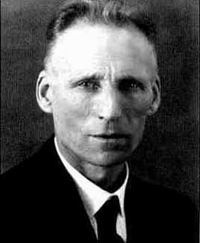 Dutch mathematician and philosopher.
Dutch mathematician and philosopher.
He is traditionally referred to as ‘L.E.J. Brouwer’, with full initials, but was called ‘Bertus’ by his friends.
In classical mathematics, he founded modern topology by establishing, for example, the topological invariance of dimension and the fixpoint theorem. He also gave the first correct definition of dimension.
In philosophy, his brainchild is intuitionism, a revisionist foundation of mathematics. Intuitionism views mathematics as a free activity of the mind, independent of any language or Platonic realm of objects, and therefore bases mathematics on a philosophy of mind. The implications are twofold. First, it leads to a form of constructive mathematics, in which large parts of classical mathematics are rejected. Second, the reliance on a philosophy of mind introduces features that are absent from classical mathematics as well as from other forms of constructive mathematics: unlike those, intuitionistic mathematics is not a proper part of classical mathematics.
Brouwer studied at the (municipal) University of Amsterdam where his most important teachers were Diederik Korteweg (of the Korteweg-de Vries equation) and, especially philosophically, Gerrit Mannoury. Brouwer’s principal students were Maurits Belinfante and Arend Heyting; the latter, in turn, was the teacher of Anne Troelstra and Dirk van Dalen. Brouwer’s classes were also attended by Max Euwe, the later world chess champion, who published a game-theoretical paper on chess from the intuitionistic point of view (Euwe, 1929), and who would much later deliver Brouwer’s funeral speech.
Among Brouwer’s assistants were Heyting, Hans Freudenthal, Karl Menger, and Witold Hurewicz, the latter two of whom were not intuitionistically inclined. The most influential supporter of Brouwer’s intuitionism outside the Netherlands at the time was, for a number of years, Hermann Weyl.
Brouwer seems to have been an independent and brilliant man of high moral standards, but with an exaggerated sense of justice, making him at times pugnacious. As a consequence, in his life he energetically fought many battles.
From 1914 to 1928, Brouwer was member of the editiorial board of the Mathematische Annalen, and he was the founding editor of Compositio Mathematica, which first appeared in 1934.
He was a member of, among others, the Royal Dutch Academy of Sciences, the Royal Society in London, the Preußische Akademie der Wissenschaften in Berlin, and the Akademie der Wissenschaften in Göttingen.
Brouwer received honorary doctorates from the universities of Oslo (1929) and Cambridge (1954), and was made Knight in the Order of the Dutch Lion in 1932.
Brouwer’s archive is kept at the Department of Philosophy, Utrecht University, the Netherlands. An edition of correspondence and manuscripts is in preparation.
Based on his philosophy of mind, on which Immanuel Kant and Schopenhauer were the main influences, Brouwer characterized mathematics primarily as the free activity of exact thinking, an activity which is founded on the pure intuition of (inner) time. No independent realm of objects and no language play a fundamental role. He thus strived to avoid the Scylla of platonism (with its epistemological problems) and the Charybdis of formalism (with its poverty of content). As, on Brouwer’s view, there is no determinant of mathematical truth outside the activity of thinking, a proposition only becomes true when the subject has experienced its truth (by having carried out an appropriate mental construction); similarly, a proposition only becomes false when the subject has experienced its falsehood (by realizing that an appropriate mental construction is not possible). Hence Brouwer can claim that ‘there are no non-experienced truths’ (Brouwer, 1975, p.488).
Brouwer was prepared to follow his philosophy of mind to its ultimate conclusions; whether the reconstructed mathematics was compatible or incompatible with classical mathematics was a secondary question, and never decisive. In thus granting philosophy priority over traditional mathematics, he showed himself a revisionist. And indeed, whereas intuitionistic arithmetic is a subsystem of classical arithmetic, in analysis the situation is different: not all of classical analysis is intuitionistically acceptable, but neither is all of intuitionistic analysis classically acceptable. Brouwer accepted this consequence wholeheartedly.

When I initially commented I clicked the “Notify me when new comments are added” checkbox and now each time a comment is added I get several e-mails with the same comment. Is there any way you can remove people from that service? Thanks a lot!
It’s hard to come by experienced people for this subject, however, you seem like you know what you’re talking about! Thanks